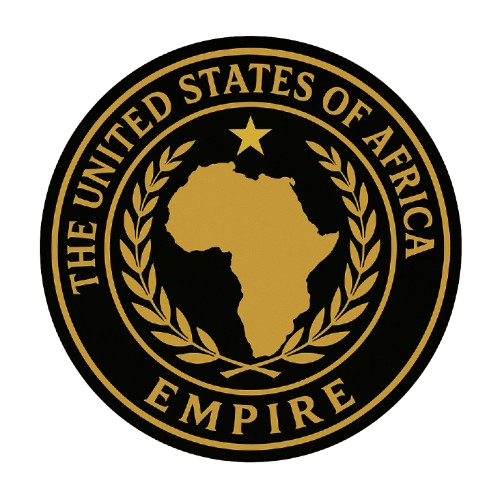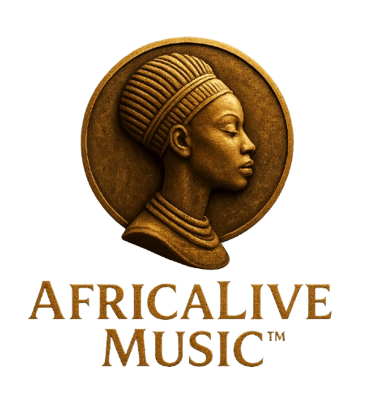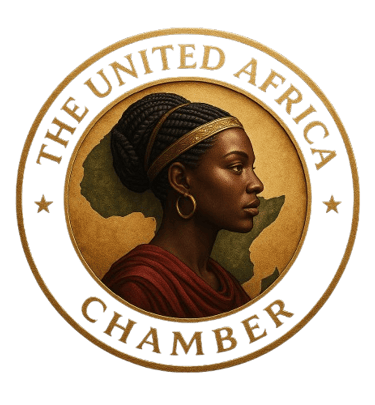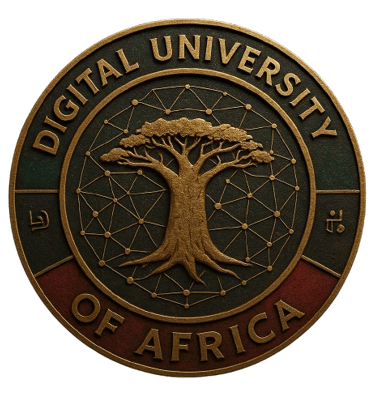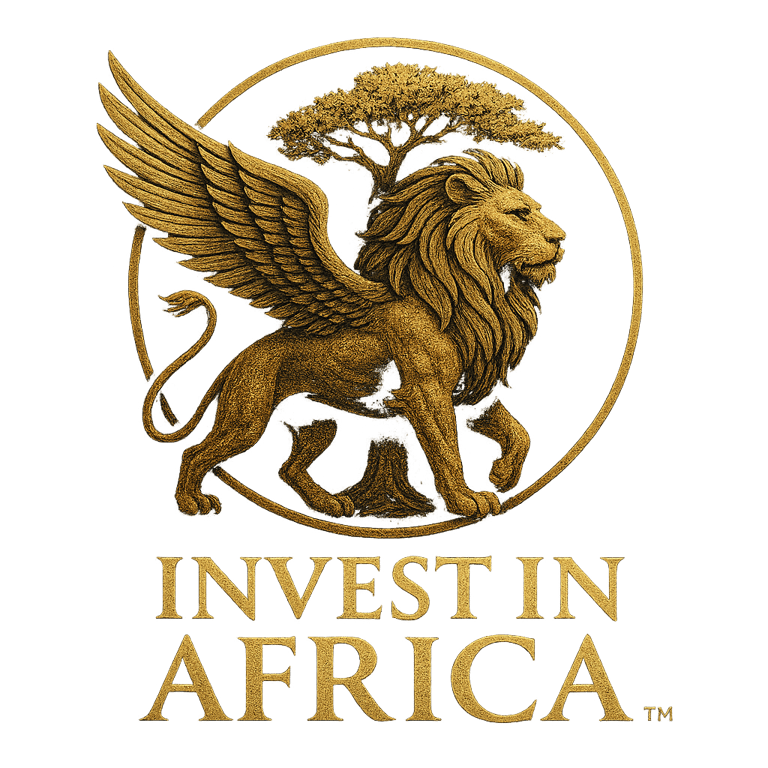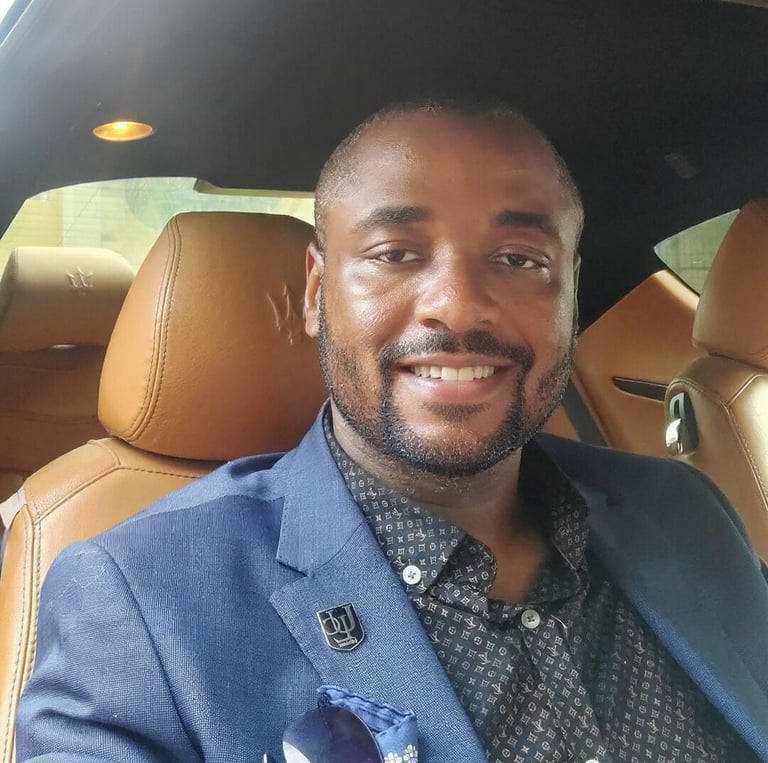Empowering Africa's Future Together
Join us in transforming Africa through innovation and ethical investment.
Connecting education and technology for growth.
Fostering health and wellness across the continent.
Building sustainable partnerships for a brighter future.
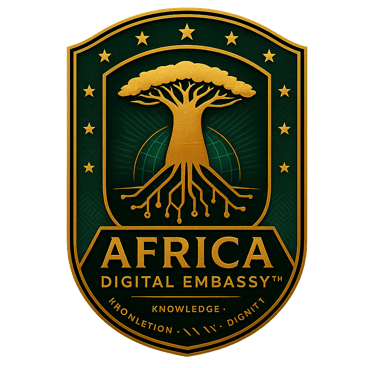

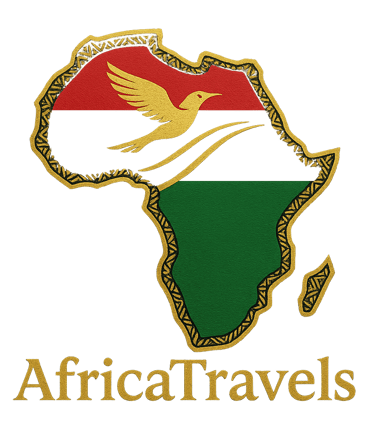

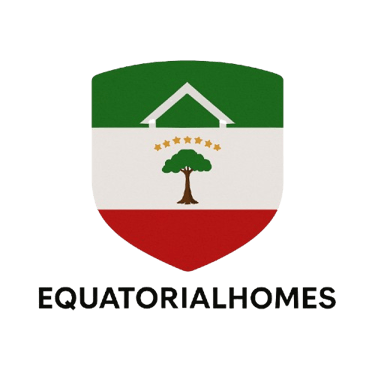


Empowering Africa's Future
Invest in Africa™ connects innovation with ethical investment across diverse sectors, fostering sustainable growth and global partnerships for a brighter tomorrow.
🌍 Executive Summary – Invest in Africa™ & Pan-African Digital Platforms
The Invest in Africa™ ecosystem is a constellation of sovereign, ethical, and innovative platforms designed and created by Javier Clemente Engonga to accelerate Africa’s transformation through education, health, governance, culture, technology, sports, and investment.
1. Invest in Africa™
A continental hub for ethical investment opportunities, connecting global partners with Africa’s industrial, technological, and human potential.
2. Investir au Cameroun™
A specialized platform to promote investment and sustainable development opportunities in Cameroon.
3. Invest in Cameroon™
A digital gateway showcasing Cameroon’s economic potential, linking local industries with global investors.
4. Digital University of Africa™
AI-driven education for Africa’s youth, offering curricula, research collaboration, and international partnerships.
5. Africa Digital Education™
An e-learning ecosystem providing accessible, multilingual education tools for African students.
6. World Digital Hospital™
A healthcare initiative bringing AI-enabled telemedicine, robotics, and universal health access to Africa.
7. Digital Hospital™
Focused on telehealth, diagnostics, and e-medicine infrastructure, complementing the World Digital Hospital vision.
8. Global Health System™
A universal framework for integrated health innovation and global medical cooperation.
9. World Digital Government™
A governance prototype merging AI, blockchain, and digital infrastructure for transparent administration.
10. Digital Chamber of Africa™
A continental chamber supporting digital business, startups, and innovation ecosystems.
11. The United Africa Chamber™
A pan-African chamber fostering intra-African trade and international business collaboration.
12. The Digital Chamber™
A digital-first chamber of commerce for global e-business and African entrepreneurs.
13. Africa Digital Credit™
A fintech platform expanding digital credit, inclusion, and access to finance across Africa.
14. Africa Digital Embassy™
A virtual diplomatic platform enabling international cooperation, trade, and cultural exchange.
15. Global Virtual Republic™
An experiment in post-digital governance, merging ethics, AI, and democracy for global citizenship.
16. Global Virtual Republic™
A commercial mirror of the project, supporting digital economy, identity, and global services.
17. Republic of Equatorial Guinea™
The sovereign digital nation platform, embodying legal, ethical, and technological nationhood.
18. Republic of Equatorial Guinea™
A complementary public-facing portal for national identity and international partnerships.
19. Vision for Africa™
A strategic platform for policy innovation, leadership development, and continental renewal.
20. Africa Reimagined™
A visionary hub for industrial modernization, sustainability, and future-oriented cooperation.
21. Ubuntu Wealth™
A financial ecosystem promoting shared prosperity, community wealth, and ethical economics.
22. Africa Wealth™
A pan-African platform for sovereign wealth creation, digital assets, and investment innovation.
23. The African Wealth™
A continental hub for financial literacy, entrepreneurship, and investment pathways.
24. Africa Travels™
A platform for sustainable tourism and cultural exchange, positioning Africa as a key global destination.
25. Equatorial Homes™
Smart cities and real estate platform focused on sustainable housing and renewable energy.
26. International Affairs Online™
A global hub for diplomacy, multilateral cooperation, and international relations.
27. Editorial Digital™
A publishing and communication agency supporting open knowledge and African authors.
28. Libros de Guinea Ecuatorial™
A platform offering free access to African literature, fostering literacy and culture.
29. Biblioteca de Guinea Ecuatorial™
The national digital library preserving intellectual heritage and academic research.
30. Africa Live Music™
A cultural platform for African music promotion, events, and global streaming.
31. Black Magazines™
A digital media hub for African and diasporic culture, arts, and journalism.
32. Africa Diplomatic Cars™
A specialized platform for diplomatic mobility, services, and protocol vehicles.
33. African International Sports Agency™
A sports agency promoting African athletes and international sports diplomacy.
34. Agencia Nacional del Deporte™
A national sports development platform supporting talent, infrastructure, and events.
35. Africa United™
A unifying platform for pan-African cooperation through sports, culture, and youth empowerment.
36. The Africa Championship™
A digital-first championship platform for African sports competitions and events.
37. Africa First All Sports™
A continental initiative to professionalize and globalize African sports.
38. Africans Connected™
A pan-African social network connecting people, projects, and communities.
39. Africans Connected A.I.™
The first A.I. system developed in Africa and by africans.
40. BlackLabs™
An afrocentric technological solutions for Africa, global and diaspora connectivity.
41. Clean Cameroon™
A sustainability initiative focused on environmental protection and green innovation in Cameroon.
42. Para una Guinea Mejor™
A reform and renewal platform dedicated to ethical governance and national progress.
43. Living Forever™
A visionary project exploring life extension, wellness, and transhumanist innovation.
44. World War News™
An ontological news hub reporting on the global spiritual and cultural conflict shaping humanity.
45. Welcome to Africa™
A platform promoting African renaissance, opportunities, and cultural pride.
46. Afropedia™
A free digital library of African books, knowledge, and cultural archives.
47. The Messiah Gospel™
A platform dedicated to spiritual renewal, consciousness, and ethical transformation.
48. The Dream Chaser™
A motivational hub empowering Africans to pursue dreams, entrepreneurship, and innovation.
49. I Am That Negro™
A cultural identity project celebrating African heritage and resilience.
50. Digital City of Africa™
A futuristic urban development project for smart cities, mobility, and digital living.
⚡ Together, these 50+ platforms form a living architecture of Africa’s future, ready for collaboration with governments, institutions, and global technology partners.
Empowering Africa's Future Together
Join us in transforming Africa through innovation and ethical investment.
Connecting education and technology for growth.
Fostering health and wellness across the continent.
Building sustainable partnerships for a brighter future.







Europe’s Industrial Crossroads: Why Africa Holds the Key to Its Survival
To understand the crisis Europe is facing today, one must go back to the so-called Second World War. That war, which Europeans call “worldwide” but was in essence their second great civil war of the West, was less about ideology and more about the control of resources, trade, and industrial survival. Germany’s push for expansion was as much about finding new markets and access to raw materials as it was about politics. The victors of that war—the United States, Britain, France, and later their allies—did not only defeat Germany militarily; they excluded it from the colonial repartition of the world, especially Africa.
This exclusion was not a detail. Africa was the warehouse of resources—the lifeline of free raw materials—that had allowed European empires to industrialize and sustain themselves for centuries. Germany, cut off from this colonial bounty, faced harsh limits to its expansion. The war ended not only in military defeat but in the confirmation of a geopolitical and economic order in which Germany could never again access Africa’s wealth freely.
Fast forward to today: the tables have turned. The post-1945 system no longer functions as smoothly. African nations are asserting sovereignty, demanding fairer partnerships, and welcoming new global players. China has invested massively in infrastructure and trade. The United States now seeks direct access to African resources, bypassing Europe. What once came “free” to Europe is now costly. As the U.S. and China deepen their presence in African markets, European economies begin to tremble. This is not coincidence—it’s the logical collapse of a historical imbalance.
Europe’s Crisis: Industrial Giants Without Space
Europe’s historic strength lies in its industrial and technological might. From Germany’s automotive and engineering sectors, France’s aerospace and nuclear industries, Italy’s fashion and manufacturing hubs, to the UK’s financial and tech centers—Europe has long survived by producing more than it consumes and exporting the surplus. But now, its domestic markets are saturated, its population is aging, and its dependence on external raw materials remains absolute.
In the past, colonies offered cheap—or free—resources and guaranteed markets. Those colonial empires collapsed. Now, former colonies negotiate from a position of growing strength. For a continent used to extraction without reciprocity, this is deeply destabilizing.
Add to that a new layer of pressure: China and the U.S. are locking horns over direct access to Africa’s economic future. Europe, caught in the middle, is being squeezed.
The war in Ukraine worsened this trajectory. Energy prices soared. Inflation returned. Supply chains faltered. Europe’s industrial model—cheap Russian gas + exports to Asia—is broken. It needs a new model. A new horizon.
Africa: The Obvious but Unspoken Solution
The only realistic path forward for Europe is to relocate part of its industrial capacity to Africa. Not out of charity—but for economic survival.
Africa holds what Europe lacks:
Resources: Cobalt, lithium, oil, gas, rare earths, fertile land, water—everything needed for future industries: electric vehicles, renewable energy, next-gen batteries.
Labor: The youngest population on Earth. While Europe ages, Africa's youth is growing—skilled, connected, and full of energy.
Markets: Over 1.4 billion people today, projected to double by 2100. Urbanization, a rising middle class, and digital access are transforming the continent into the most promising consumer base on the planet.
Producing in Africa—cars, electronics, pharmaceuticals, fashion—would be cheaper, faster, and more strategic than relying on fragile Asian chains or shrinking European markets. Imagine German EVs assembled in Lagos, French vaccines made in Abidjan, or Italian fashion produced in Addis Ababa. Not only would costs drop, but the symbolic shift would be profound:
Europe would finally treat Africa as a partner, not a quarry.
But sadly, European racism is still stronger than its wisdom.
Why It Hasn’t Happened Yet
If the logic is so obvious, why hasn’t Europe moved?
Two words: racism and short-termism.
Europe’s relationship with Africa has always been extractive, never collaborative. The colonial mindset still rules: Africa is where you take from, not where you build with. That’s why China succeeds—it builds roads, railways, trade zones. Europe sends troops and lectures.
And politically? European leaders can’t see beyond the next election. They think in quarters. China and the U.S. think in decades. That’s the difference. That’s the failure.
A Historical Irony
Europe once divided Africa to ensure its own survival.
Today, its survival depends on integrating with Africa—but on Africa’s terms.
The Berlin Conference of 1884–85 saw European powers carve up Africa without consent. Germany got the scraps. Now, over a century later, Europe is back at a table—not to divide Africa, but to decide whether it can accept Africa as an equal partner.
If it refuses, the outcome is clear: irreversible decline.
If it embraces partnership, a new renaissance becomes possible.
The Risks of Doing Nothing
If Europe clings to its old habits, it faces:
Industrial collapse: Factories closing. Competitiveness lost.
Strategic dependence: On U.S. energy, Chinese goods, global instability.
Social decay: Rising unemployment, inequality, extremism.
These are no longer distant forecasts—they’re current symptoms.
A Real Vision for the Future
A wise Europe would:
Establish joint industrial zones across Africa.
Form co-owned enterprises with African states and investors.
Transfer technology in exchange for long-term partnerships.
Build infrastructure—railways, ports, data highways—that unite Europe and Africa.
See Africa not as its periphery—but as the heart of its strategic survival.
This would not be a gift to Africa.
It would be a lifeline to Europe.
And in return, Africa would receive investment, technology, and the chance to industrialize on its own terms.
It’s the definition of mutual interest.
🛡 Let Vibrational Justice Flow
This is no longer about policy.
It’s about vibrational law.
“I don’t wish them well or ill—I wish them exactly what they deserve.”
And what they deserve—for centuries of theft, denial, institutional racism, and imperial arrogance—is exactly what they are living now:
A tired continent, drained of spirit.
An obsolete economy built on colonial echoes.
A youth that no longer believes in anything.
A moral bankruptcy that traded truth for privilege.
While they scramble to save their crumbling tower of Babel, we rebuild ours—with memory, with ethics, with spiritual fire.
This is not punishment.
It is destiny.
It is law.
It is return.
Because when Africa’s soul awakens,
the world that ignored her begins to collapse.
And that is not hatred.
That is equilibrium.
Conclusion: Europe’s Final Hour
Europe is at the edge.
Its past was built on exploiting Africa without consent.
Its only future lies in building with Africa—with consent.
And now, time has run out.
Africa has already moved forward.
Europe can either catch up—or perish in its pride.
📚 Explore More in the Equatorial Guinea Knowledge Library™:
🔗 House of Horus™ – Free Digital Books
🔗 Books on Google Books – Javier Clemente Engonga™
🔗 Equatorial Guinea News™ – Ontological Reports
🔗 Digital University of Africa™ – Vibrational Training
🔗 AfricaReimagined™ – Sovereign African Future
🔗 AfricansConnected™ – Network of African Souls
🔗 FutureTechnologies™ – Ethical African Tech
🔗 Africa A.I.™ – Ethical Artificial Intelligence
🔗 LivingForever™ – Expanded Conscious Life
🔗 Welcome to Africa™ – African Renaissance
🔗 World War News™ – Spiritual Global Conflict Reports
🔗 Republic of Equatorial Guinea™ – Sovereign Ontological Nation
Empowering Africa's Future Together
Join us in transforming Africa through innovation and ethical investment.
Connecting education and technology for growth.
Fostering health and wellness across the continent.
Building sustainable partnerships for a brighter future.







The End of the Pretence: Why a Hydrocarbons Law Cannot Legitimize the Plunder of a Nation
For decades, the language of law and contract has been used as a velvet glove to hide a theft. Governments and corporations found a comfortable fiction: draft a sectoral hydrocarbon law, ink production-sharing agreements, and claim that all flows from extraction to export rest on legal foundations. But legality is not a costume you wear to hide lawlessness. A law that governs production does not, and cannot by itself, legitimize the commercial expropriation of a nation’s wealth. When sale, transfer and payment are permitted in practice while the commercial architecture — the code, the institutions, the checks and balances — is absent, what remains is not commerce: it is pillage with paperwork.
In Equatorial Guinea the gap between extraction and accountable exchange is not a mistake; it is the mechanism by which public wealth is siphoned into private vaults abroad. Hydrocarbons legislation may set the technical terms of production and the state’s share on paper, but when there is no independent commercial law, no transparent registry, and no functioning public audit — when contracts and exports are channelled under opaquely authorized decrees and payments land in offshore accounts — then the state’s signature becomes an instrument to enable transnational plunder. That signature cannot cloak illegality. It magnifies it.
This is not rhetorical exaggeration. It is a sequence of legal and factual claims that can be demonstrated and verified:
Structural Legal Void: A legitimate market requires legal frameworks that govern contracting, sales, fiscal responsibility, customs, and commercial dispute resolution. A hydrocarbon statute that addresses extraction but leaves the rules of sale, transfer and transparency undefined or discretionary produces legal vacuums that empower arbitrary acts.
Institutional Capture: Where executive fiat substitutes for independent adjudication, where approvals are ministerial and unrecorded, the institutions necessary to verify, register and audit commercial transactions are absent or corruptible. The result is that the state apparatus rubber-stamps transfers that never meaningfully benefit the population.
Offshore Flows and Beneficial Owners: Payments routed to accounts in banking secrecy jurisdictions, layered through opaque corporate structures, and controlled ultimately by hidden beneficial owners are hallmarks of illicit financial flows. They create a trail that is difficult to follow but not impossible — and the existence of such trails is prima facie evidence of misappropriation that should trigger forensic inquiry.
Violations of International Standards: The UNCAC, OECD guidance, AML frameworks and international norms on extractive-sector transparency require that resource revenues be subject to public accounting, beneficial ownership disclosure, and mechanisms that prevent conflict of interest and corruption. Where states fail to meet these obligations, the international community has both the right and the duty to act.
Moral and Political Legitimacy: Legitimacy is not a bookkeeper’s term alone. It is the social contract between rulers and the ruled. When public wealth is removed without trace and the people receive none of its benefits in health, education, infrastructure or security, the political compact erodes. The regime’s claim to govern in the people’s interest becomes empty.
The remedy cannot be private vigilantism or theatrical denunciation. The remedy must be rigorous, legal, and global:
• Forensic Audit: A coordinated, independent audit of all extractive-sector contracts, production volumes, and export receipts, performed by a reputable international auditing body with access to banking records via mutual legal assistance.
• Beneficial Ownership Disclosure: Mandatory and immediate publication of beneficial owners of all entities involved in extraction, export, trading, and midstream operations.
• Targeted Asset Tracing and Recovery: Identification and restraint of assets linked to illicit flows in foreign jurisdictions through mutual legal assistance and civil recovery processes.
• Sanctions and Visa Measures: Carefully targeted sanctions against individuals credibly implicated in large-scale diversion of public funds, consistent with human-rights and anti-corruption law.
• Judicial Mechanisms: Referral of well-documented cases to competent criminal and civil jurisdictions where evidence supports prosecution or restitution claims.
• Transparent Public Accounting: Publication of all state hydrocarbon revenue flows, allocation of funds, and spending audits for citizen oversight and parliamentary review.
If the state’s apparatus has been used to simulate commercial legitimacy while facilitating outflows of national wealth, the international community and financial institutions are not innocent bystanders; they are potential facilitators. Banks, traders, legal advisers, and logistics firms that accept payments and cargo without adequate due diligence shoulder complicity when their acceptance enables theft.
The enforcement community — financial regulators, law enforcement, and anti-corruption agencies — must move from reluctant observation to decisive action.
To those who argue that contracts and laws are enough to confer legality I say this: legality is a living structure that depends on rules, institutions and enforceable obligations. A contract signed into a vacuum of commercial law, executed through shadowed channels and paid into secrecy jurisdictions to private and individual bank accounts, cannot convert theft into trade. The instruments of law cannot be deployed as instruments of deception without being reclassified for what they are.
This is not a call for vendetta. It is an invitation to accountability. It is a legal, moral, and civic imperative: to restore the link between a country’s natural wealth and the well-being of its people. To the international legal community, to financial regulators, to civil society, to investors concerned with ESG and rule of law: the facts are in plain sight. The time to act is now.
And to the citizens whose lives are eroded by emaciated public services and hollowed-out institutions: document. Preserve. Demand transparency. Use the law, the global mechanisms, the media, and peaceful civic action to reclaim what was never theirs to give.
This article is not theatre. It is not partisan performance. It is a legal and ethical dossier in narrative form — meant to mobilize lawful actors to apply the instruments available under international law to end the simulation of market legitimacy and restore real accountability. The rule of law cannot coexist with legalized plunder. When the instruments of commerce are used as tools of theft, those instruments must be reclaimed for justice.
🌍 ALERT REPORT
Toward a Pan-African Spring?
Scenarios 2025–2029: Cameroon, Congo-Brazzaville, Equatorial Guinea, Uganda
Join us in transforming Africa through innovation and ethical investment.
Connecting education and technology for growth.
Fostering health and wellness across the continent.
Building sustainable partnerships for a brighter future.







🌍 ALERT REPORT
Toward a Pan-African Spring?
Scenarios 2025–2029: Cameroon, Congo-Brazzaville, Equatorial Guinea, Uganda
How to Read This Document
Scenarios: Three trajectories per country (Continuity, Managed Succession, Rupture/Transition).
Drivers: economy, elites, security, social/ external pressure.
Early-Warning Signals: observable signs that anticipate shifts.
Implications: governance, economy, rights.
Civic Orientations: nonviolent, low-risk strategies for communities.
I) Cameroon
1. Continuity Controlled (prob. medium)
Regime leverages fragmented opposition, patronage, and security forces.
Early signs: elite reshuffles, “unity” rhetoric, social media censorship.
Implications: simmering discontent, but controlled.
Civic action: community monitoring, encrypted communication, solidarity networks.
2. Managed Succession (prob. medium-low)
Potential grooming of successor within ruling party.
Early signs: promotion of new technocratic faces, international courting.
Implications: cosmetic reforms, continuity of patronage.
Civic action: demand reform roadmaps, protect civic spaces.
3. Rupture/Transition (prob. medium-high)
Trigger: Anglophone crisis escalation, economic shocks, or security fractures.
Early signs: multi-city protests, desertions, strikes in Yaoundé/Douala.
Implications: possible broad-based transition, risk of fragmentation.
Civic action: community mediation, nonviolent protest protocols, diaspora engagement.
II) Republic of Congo (Congo-Brazzaville)
Continuity (prob. medium): 2026 elections managed, security intact.
Succession (prob. medium-low): intra-elite adjustment.
Rupture (prob. medium): oil shocks + urban protests + security splits.
Civic orientations: document abuses, alliances with unions/churches, transitional justice planning.
III) Equatorial Guinea
(Frame: “Republic of Corruption™”)
Continuity (prob. low-medium): until 2029, based on hydrocarbons + repression.
Succession (prob. medium-high): dynastic transfer, “renewal” narrative.
Rupture (prob. medium): diaspora + youth + economic shocks → pre-2029 transition.
Civic orientations: “Day One package” (truth commission, emergency fund, transparent energy audit, nonviolence pact).
IV) Uganda (Museveni)
1. Continuity (prob. medium): Museveni extends grip with military + electoral management.
Early signs: constitutional tweaks, increased youth arrests.
Implications: stagnation, growing underground resistance.
Civic: encrypted organizing, community education.
2. Succession Directed (prob. medium): grooming of Muhoozi (his son).
Early signs: military promotions, public positioning.
Implications: dynastic continuation, temporary stability.
Civic: call for transparency, push international monitoring.
3. Rupture/Transition (prob. medium): youth-driven urban protests + military split.
Early signs: defections, strikes, new cross-ethnic alliances.
Implications: high volatility, but chance for reset.
Civic: transitional blueprint, nonviolent discipline, international mediation.
Regional & Cross-Cutting Factors
Fatigue with long regimes: dynasties face less tolerance.
Economy of debt & commodities: patronage harder to sustain.
Technology race: state surveillance vs. encrypted civic networks.
Domino risk: spark in one country accelerates dynamics in neighbors.
Early-Warning Dashboard (citizens can track)
Fuel/food price spikes.
Unusual security reshuffles.
Sudden opacity in oil/gas contracts.
Official narratives: “new threats,” “unity.”
Targeted arrests, media blackouts.
Elite capital flight, “medical” trips abroad.
Civic Nonviolent Routes
Memory & proof: secure digital archives (contracts, abuses).
Social alliances: churches, unions, professional groups.
Emergency services: legal aid, first aid, safe houses.
Community training: rights, mediation, emotional resilience.
Diaspora diplomacy: bridge for monitoring, humanitarian aid.
Economic resistance: cooperatives, community funds, bulk buying.
Conclusion
Cameroon: most likely flashpoint; urban + Anglophone unrest could ignite domino.
Congo-Brazzaville: fragile equilibrium; succession vs. rupture depends on security cohesion.
Equatorial Guinea: dynastic succession most probable, but rupture plausible before 2029 if economy + diaspora + security align.
Uganda: youth + economic stress could break continuity; succession project may or may not hold.
Big Picture: The “Pan-African Spring” is not guaranteed, but structural drivers (youth bulge, economic stress, regime fatigue, digital organizing) make simultaneous ruptures plausible between 2025–2029.
Negrodescendants, Afrodescendants, and the Crime Against Our People in the World
Join us in transforming Africa through innovation and ethical investment.
Connecting education and technology for growth.
Fostering health and wellness across the continent.
Building sustainable partnerships for a brighter future.







Negrodescendants, Afrodescendants, and the Crime Against Our People in the World
To be Afrodescendant or Negrodescendant in today’s world is not just to carry a common origin — it is to bear a history of dispossession, resistance, and resilience that spans continents and centuries. Our people are in Africa, in the Americas, in Europe, but also in Asia, in India, in the Philippines, in China, in Thailand, in Australia, and across the Pacific. We are millions, hundreds of millions, and the violence against us has not ceased — it has only mutated.
The history of the crime against Black people did not begin nor end with the transatlantic slave trade. It is a global, systemic process that cuts across colonial eras and contemporary realities. And today, in the 21st century, the lack of justice and reparation means the crime continues.
I. The Original Wound: Forced Diaspora and the Native Peoples
Between the 16th and 19th centuries, more than 12 million Africans were torn from their homeland and sold as slaves in the Americas and Europe. But that is only one part of the story.
Before and during that period there was the Indian Ocean slave trade, which for centuries brought millions of Africans to India, Pakistan, Iran, Arabia, Indonesia, and China.
The Siddis of India, today numbering over 200,000 people, are descendants of Africans taken to the subcontinent more than 500 years ago.
The Afro-Iranians, the Afro-Arabs in Yemen and Oman, and the Afrodescendants of the Persian Gulf are testimony to a slave trade erased from Western memory.
In Southeast Asia, the Afro-Filipinos and communities of African descent in Thailand or Indonesia have been silenced in the national historical narratives.
But there is another dimension: the aboriginal Black peoples of Asia and Oceania, who are also original Negrodescendant peoples. The Negritos of the Philippines, the Andamanese of India, the Melanesians of Papua and Fiji, the Aboriginal Australians, and many other communities are part of the great Negrodescendant family. They were not brought — they are original, and their very presence proves that Africa is the root of all humanity.
The crime against our people strikes both the Afrodescendants brought through slavery and the original Black peoples of Asia and Oceania, who continue to face racism, marginalization, and cultural erasure.
II. The Unfinished Abolition
The abolition of slavery in the 19th century brought neither justice nor reparation.
In Brazil, the last country to abolish slavery (1888), 56% of the population is Black, yet they are the majority among the poor and the victims of police violence.
In India, the Siddis remain marginalized, treated as second-class citizens.
In Australia, Black Aboriginal peoples, present for more than 60,000 years, are still the poorest and most discriminated communities in the country.
The global invisibility of both original Black peoples and enslaved Afrodescendants is a form of contemporary slavery.
III. The Contemporary Crime Against Negrodescendants
Today structural racism against Black peoples operates everywhere:
Americas & Caribbean: Afro-Colombians live with shorter life expectancy; African Americans are killed by police at disproportionate rates; Haitians are treated as subhuman in the Dominican Republic.
Europe: Black youth are mass-stopped by police in France; African migrants are exploited in Italian and Spanish agriculture in conditions close to slavery.
Asia: Siddis in India face discrimination; Africans in China are marginalized and persecuted; Negritos in the Philippines are pushed toward cultural extinction.
Oceania: Aboriginal Australians are disproportionately incarcerated; Melanesians are exploited in extractive industries; Afrodescendant migrants remain invisible.
The crime is not past — it is present.
IV. NGOs and the Business of Charity
Western NGOs, far from transforming these realities, have become partners of the system. They administer poverty as a business, legitimize misery with cosmetic projects, and never attack the roots: colonial domination, structural racism, and economic plunder.
V. Cultural Erasure as a Crime
In Asia, the history of the Negritos and Andamanese is deliberately hidden.
In Oceania, Aboriginal Australians are excluded from textbooks as the first inhabitants of the land.
In Africa, the memory of the Indian Ocean slave trade has been erased from global discourse.
Cultural erasure kills as much as physical violence because it robs people of memory, identity, and the right to exist.
VI. Justice Still Pending: Global Reparation
The International Decade for People of African Descent (2015–2024) has barely scratched the surface. It is not enough to demand reparations from Europe and the Americas. India, Iran, Arabia, China, the Philippines, and Australia must also recognize and repair their Black populations — both Afrodescendants and original.
A Global Commission on Reparations must include the Black communities of Asia and Oceania. Because there is no partial justice: it is either global, or it is a lie.
VII. Slavery Changed Its Face
African migrants sold in Libyan slave markets.
Congolese miners exploited to fuel the global tech industry.
Original Black peoples of Asia displaced by “development” and extractive projects.
Slavery lives on, disguised as globalization.
VIII. Resistance and Global Renaissance
Our people resist:
Siddis in India preserve their culture.
Negritos in the Philippines fight for recognition.
Aboriginal Australians defend ancestral lands.
In the Americas, Europe, and Africa, Pan-Africanism and antiracist movements build bridges across all diasporas.
The Black renaissance will be global — or it will not be.
Conclusion
The crime against Afrodescendants and Negrodescendants is a wound that unites Africa, the Americas, Europe, Asia, and Oceania. Recognizing the original Black peoples of Asia and Australia alongside the Afrodescendant diasporas is essential to break the wall of invisibility.
Our struggle is not only about memory of the past — it is justice for the present and the future. As long as there is no global reparation, justice will remain a hollow word.
Empowering Africa
Connecting innovation and investment for sustainable growth across Africa's diverse sectors.
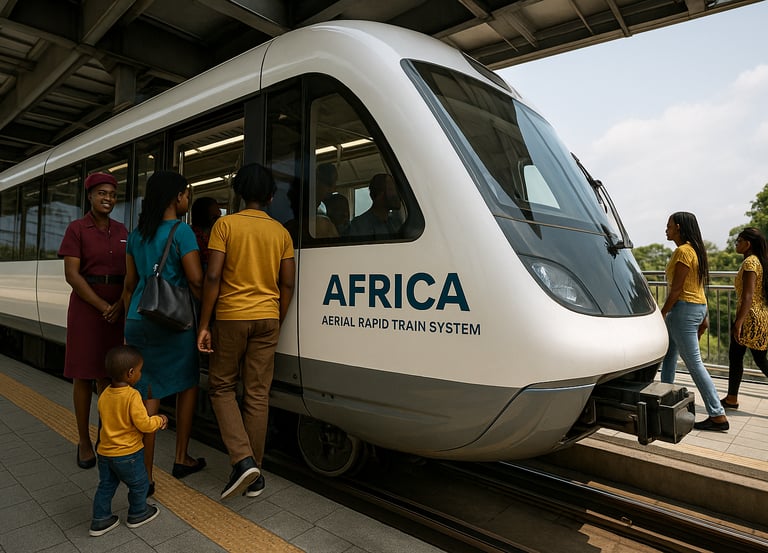

Digital Education Solutions
Transforming learning experiences through innovative digital platforms for all ages.
Healthcare Innovations
Revolutionizing health services with cutting-edge technology and global partnerships.
Cultural Exchange
Celebrating Africa's rich heritage through art, music, and community engagement.
Join Our Community
Empower Africa through ethical investment today.
Our Brands
Explore our vibrant ecosystem of innovation.


